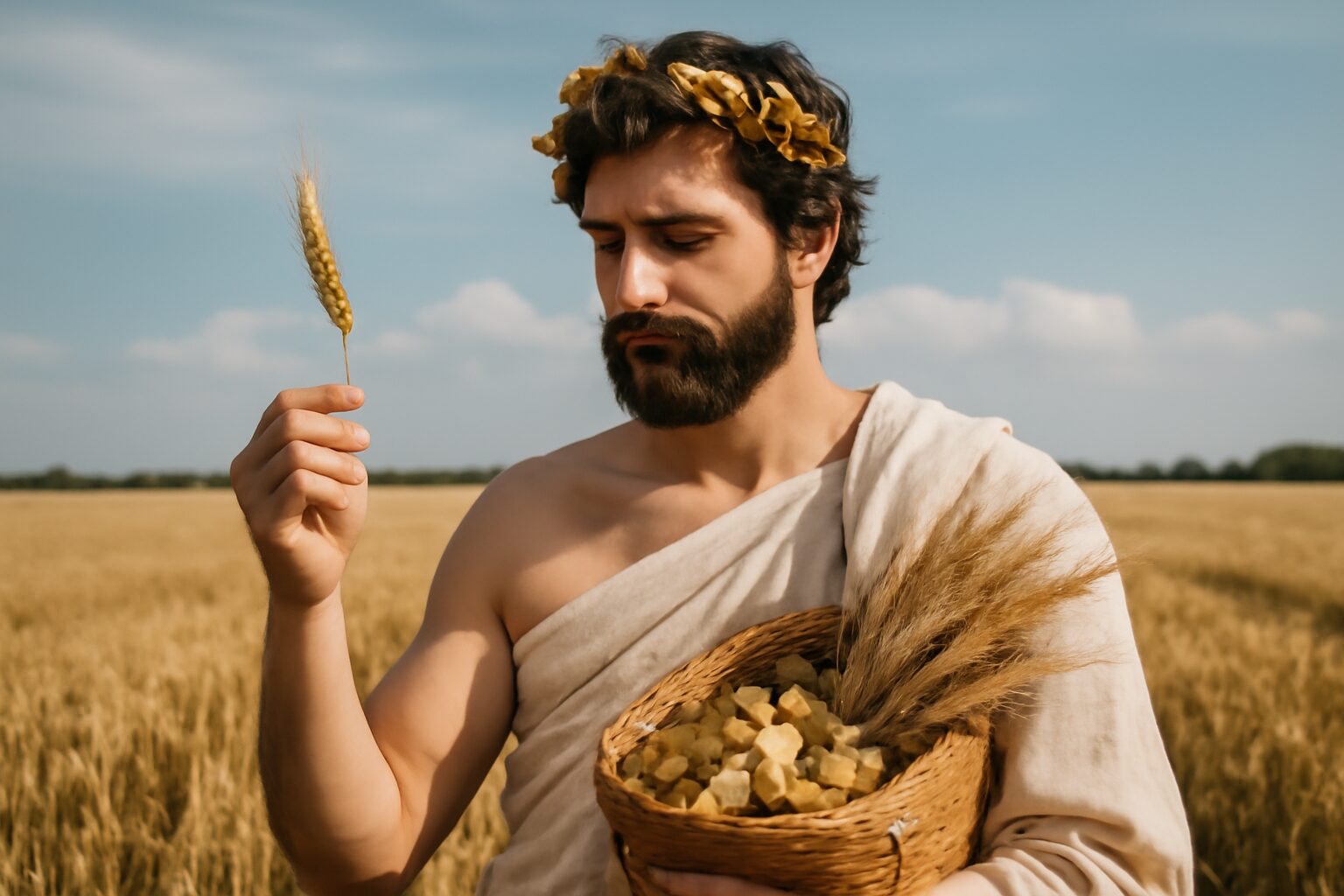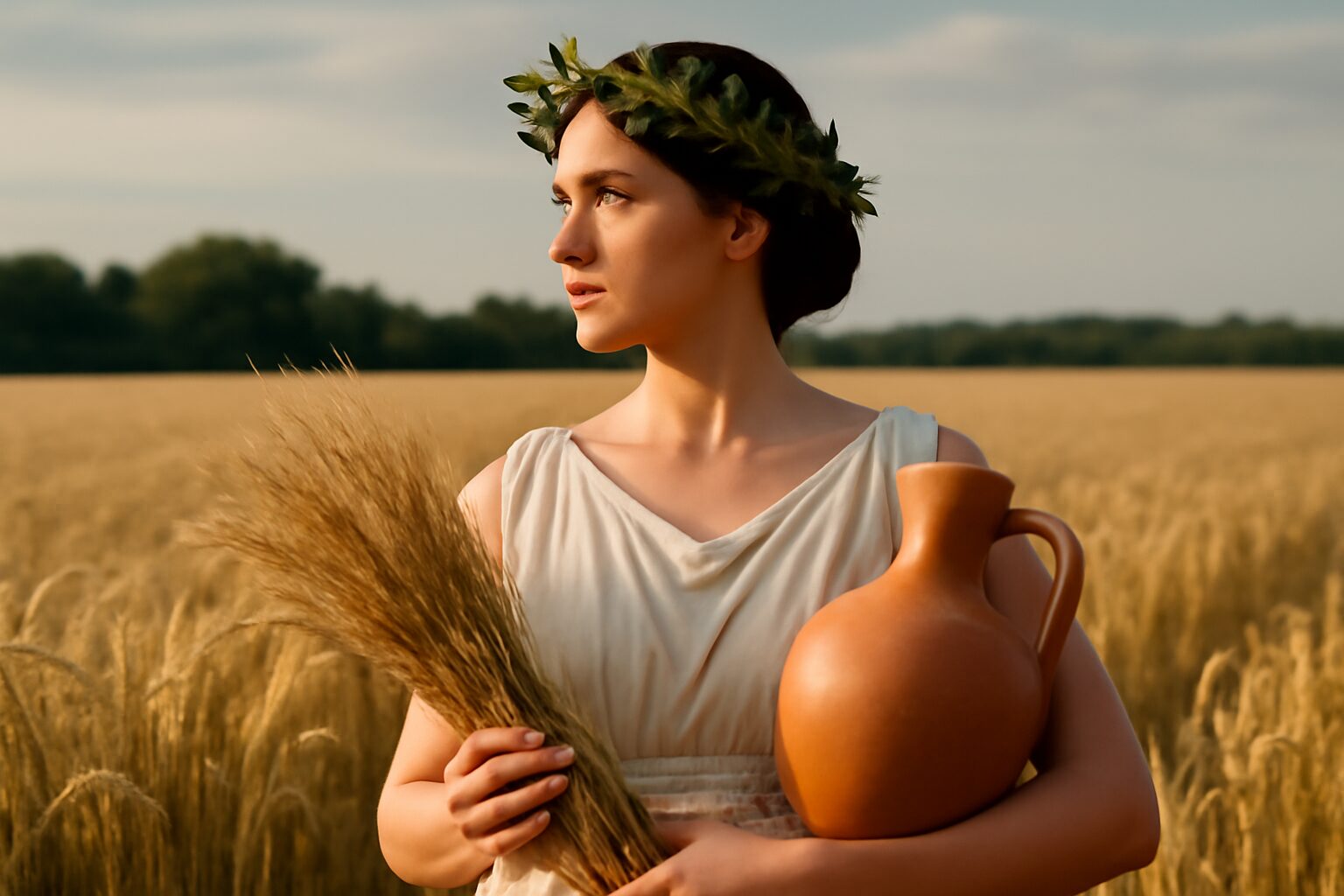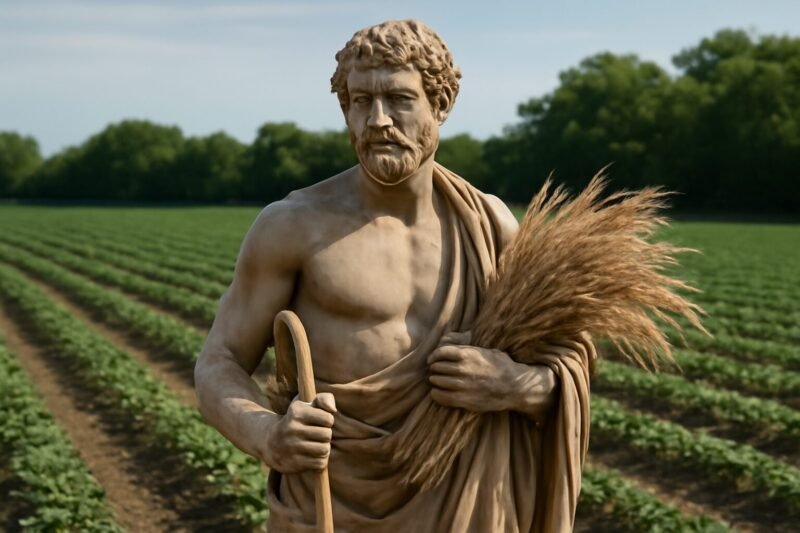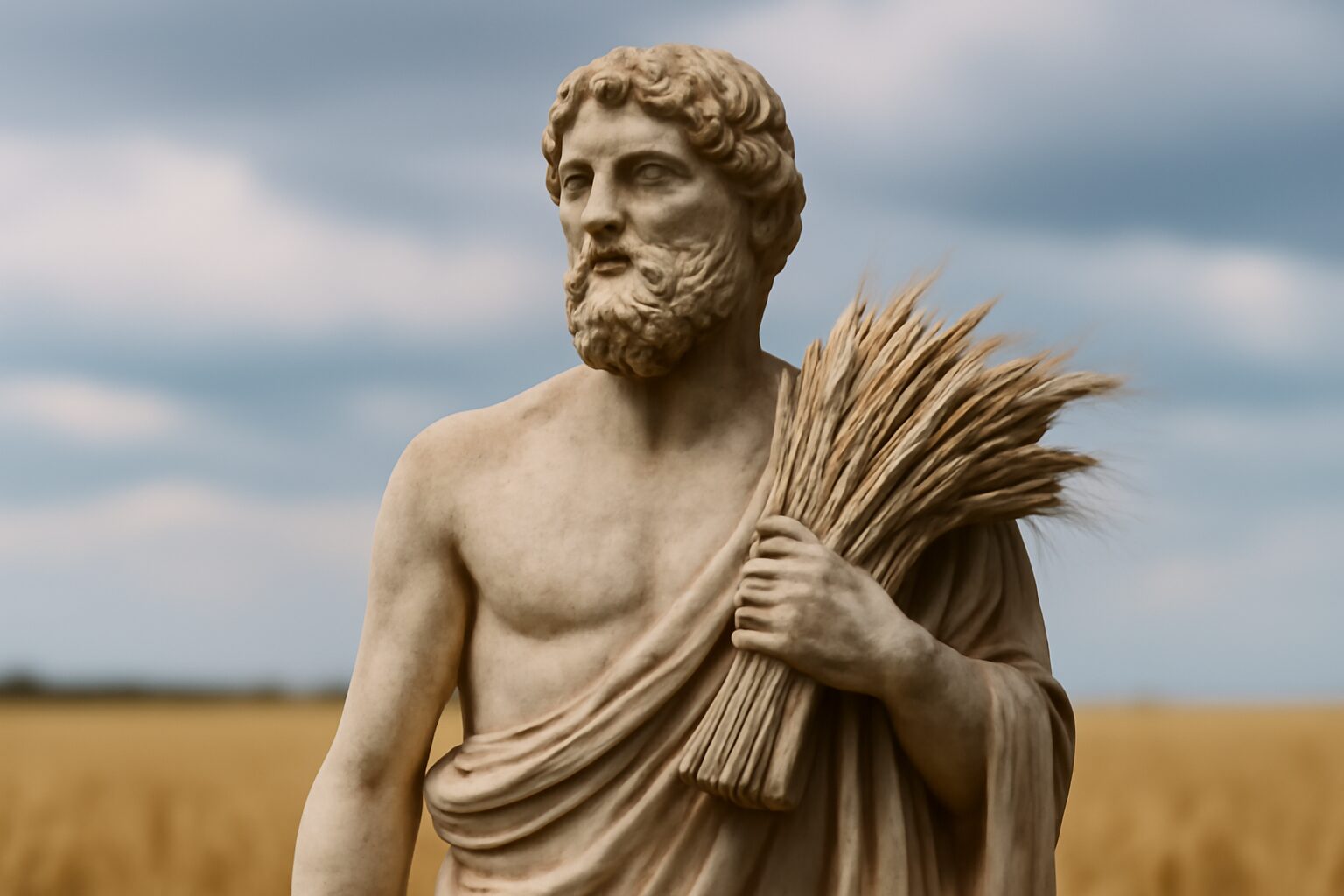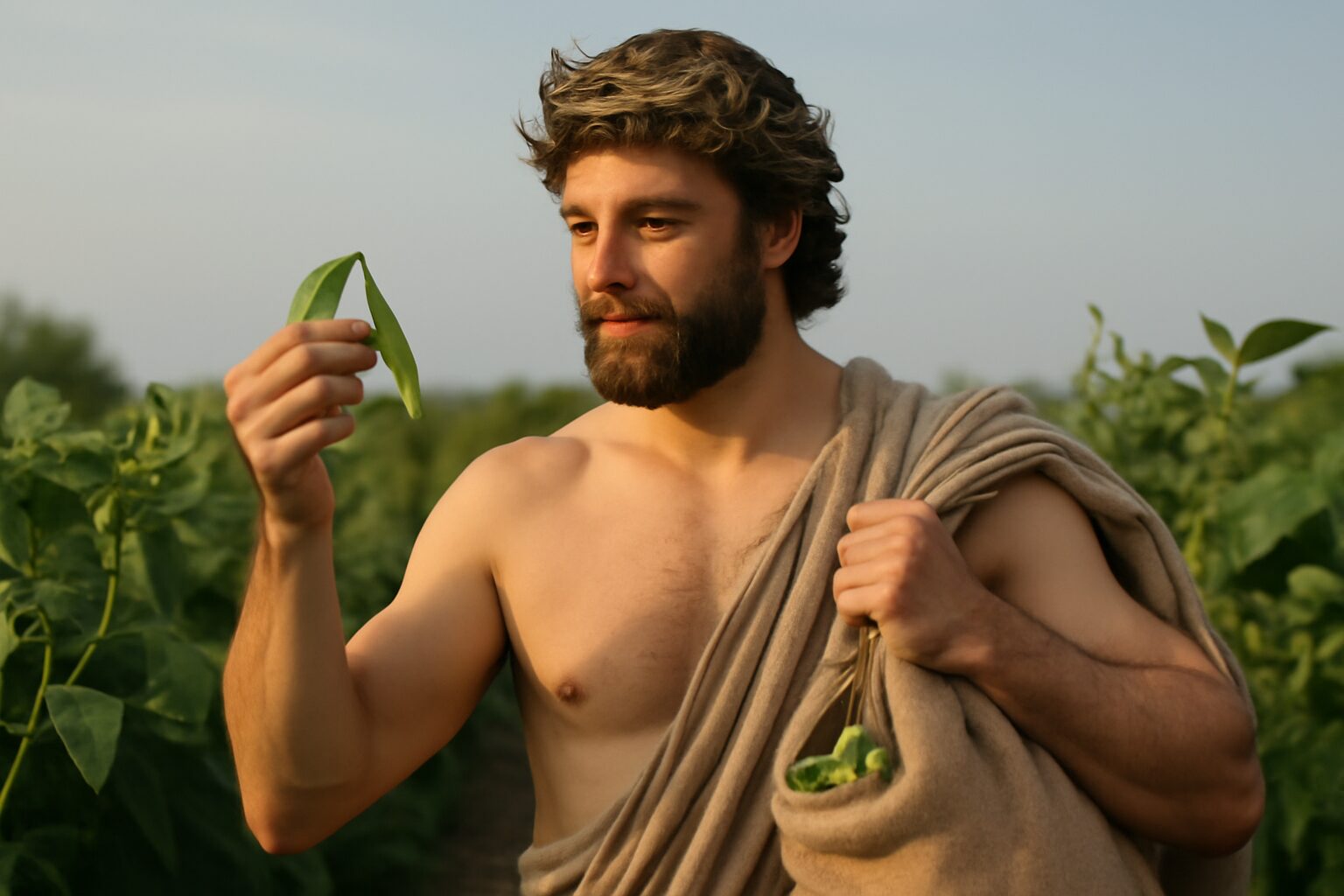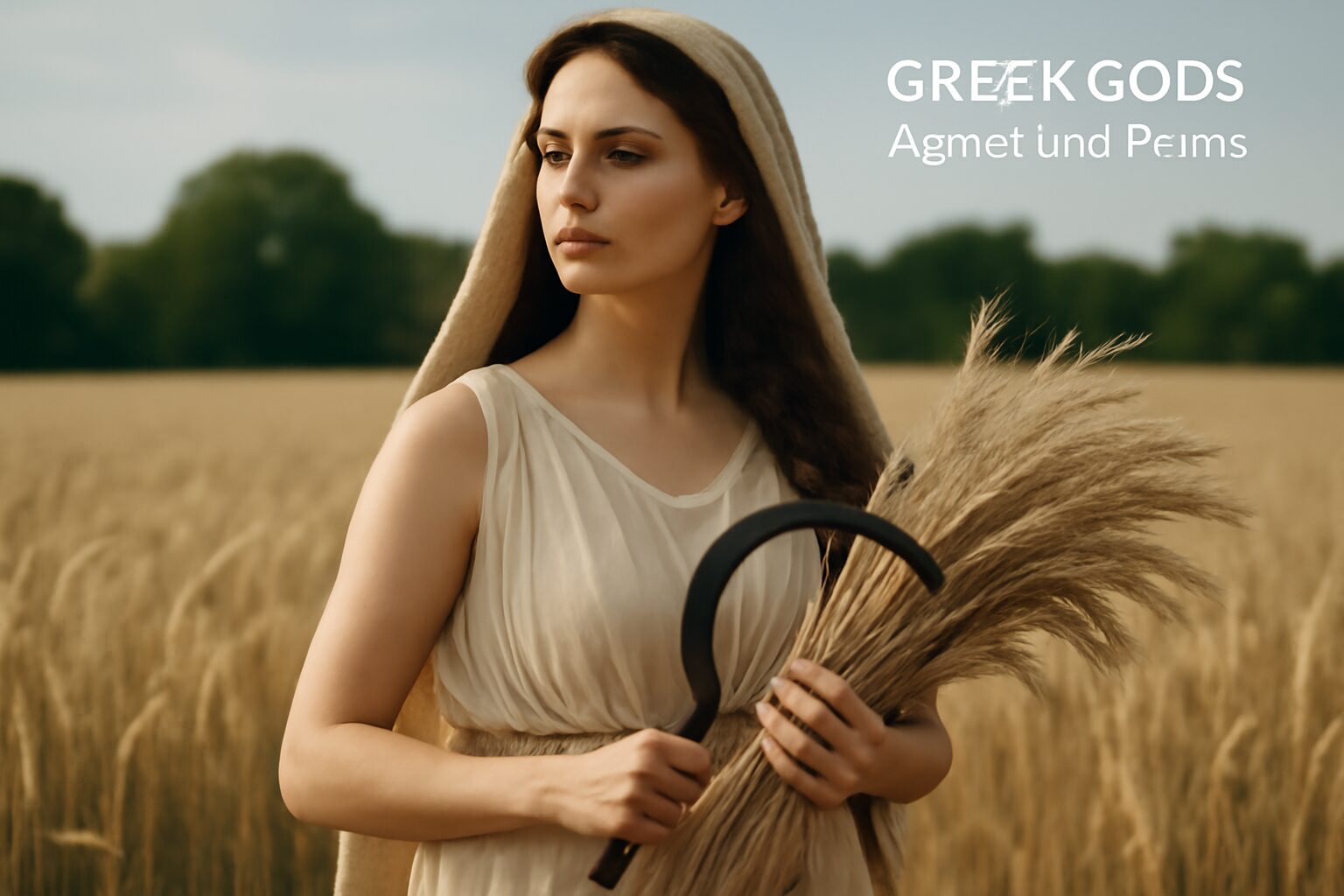Plutus: The God of Wealth in Greek Mythology
In Greek mythology, Plutus (also known as Ploutos) was the divine personification of wealth, abundance, and agricultural prosperity. Unlike modern concepts of wealth, Plutus was closely tied to the earth's bounty—grain, harvests, and the riches of the soil—reflecting the agrarian roots of ancient Greek society.
Origins and Mythology
Plutus was the son of Demeter, the goddess of agriculture, and Iasion, a mortal hero. According to Hesiod's Theogony, their union occurred in a thrice-plowed field, symbolizing fertility and the earth's generative power. However, Zeus, enraged by their coupling, struck Iasion down with a thunderbolt. Despite this tragic beginning, Plutus became a key figure in myths about fortune and divine favor.
One famous myth involves Plutus being blinded by Zeus, ensuring that wealth would be distributed randomly rather than justly—a commentary on the unpredictable nature of prosperity. In Aristophanes' comedy Plutus, the god regains his sight, leading to a world where wealth is distributed fairly, causing chaos among mortals who had grown accustomed to inequality.
Powers and Symbolism
Plutus was often depicted as a youthful figure holding a cornucopia (horn of plenty), overflowing with fruits, grains, and coins, symbolizing inexhaustible riches. Unlike Hades, who ruled over the underworld's mineral wealth, Plutus represented the prosperity of the living world—fertile lands, successful harvests, and material abundance.
His association with Demeter linked him to the Eleusinian Mysteries, secret religious rites promising initiates a blessed afterlife. Here, Plutus embodied not just earthly wealth but spiritual riches, reinforcing the idea that true prosperity encompassed both physical and divine blessings.
Relationships and Worship
Though not as widely worshiped as the Olympians, Plutus was venerated in agricultural communities, where farmers sought his favor for bountiful crops. He was sometimes conflated with Pluto (Hades' Roman counterpart), leading to occasional overlap between chthonic and earthly wealth in later traditions.
In art, Plutus was often shown alongside Tykhe (Fortune), emphasizing the fickle nature of wealth. His myths served as moral lessons, reminding Greeks that prosperity was a divine gift—one that could be granted or revoked capriciously by the gods.
Legacy
Plutus' influence endures in modern language—the word plutocracy (rule by the wealthy) derives from his name. His myths also reflect timeless questions about fairness, greed, and the unpredictable distribution of fortune, making him a surprisingly relevant figure even today.
Alternative Names for Plutus
God Name: Pluto (Roman)
In Roman mythology, Plutus is sometimes conflated with Pluto, the god of the underworld, due to their similar names and associations with wealth (Pluto also being associated with the riches of the earth).
God Name: Ploutos (Greek)
An alternative Greek name for Plutus, derived from the Greek word 'ploutos' meaning 'wealth'. This name emphasizes his role as the god of wealth and abundance.
God Name: Philargyros (Greek)
A rare epithet for Plutus, meaning 'lover of silver', highlighting his association with monetary wealth and material riches.
God Name: Ktu00easios (Greek)
An epithet for Plutus, meaning 'of the house' or 'of possessions', often used in the context of household wealth and prosperity.
Tales about Plutus
Plutus and Demeter: The Gift of the Golden Harvest
In the age when mortals toiled endlessly for meager sustenance, Demeter, the goddess of the harvest, watched with a heavy heart. She saw their suffering and resolved to bring them abundance. Knowing that Plutus, the god of wealth, held the key to earthly prosperity, she sought him out in the deep, shadowy caves where he hoarded his treasures.
Demeter approached Plutus with a proposition: "Grant the mortals a portion of your wealth, so their fields may flourish and their barns overflow." Plutus, initially wary and protective of his riches, was moved by Demeter's compassion. He agreed, but on one condition: the wealth must be earned through honest labor and reverence for the earth.
Together, they blessed the farmlands. Where Plutus' golden touch fell, crops grew in unparalleled abundance, and livestock thrived. Demeter ensured the soil was fertile and the seasons favorable. This partnership created the first golden harvest, teaching humanity that true wealth comes from harmony with nature and diligent work.
Plutus and Zeus: The Blind Bestowal of Fortune
Zeus, the king of the gods, once observed that Plutus distributed wealth unevenly among mortals, often favoring the wicked over the virtuous. Concerned for justice, Zeus summoned Plutus to Olympus. "Why do you shower riches upon the corrupt while the righteous struggle?" Zeus demanded.
Plutus explained that he was blind—unable to see whom he enriched—and thus acted without bias. Intrigued, Zeus devised a test: he temporarily restored Plutus' sight. For a season, Plutus bestowed wealth only upon the deserving: the kind, the hardworking, and the pious. Yet, he soon found that even the virtuous could be corrupted by excess, while some of the wicked used their wealth for good.
Realizing the complexity of mortal nature, Zeus decreed that Plutus should remain blind, ensuring that fortune would be distributed unpredictably. This myth explains why wealth often seems arbitrary, reminding us that material riches do not define virtue or happiness.
Frequently Asked Questions
Who is Plutus in Greek mythology?
Plutus is the Greek god of wealth and the son of Demeter, the goddess of agriculture. He is often depicted as a boy holding a cornucopia, symbolizing abundance and prosperity.
Why is Plutus important in Greek mythology?
Plutus represents wealth and agricultural bounty, which were vital to ancient Greek society. His connection to agriculture highlights the importance of farming and natural resources in sustaining life and economy.
What can we learn from the myth of Plutus?
The myth of Plutus teaches us about the ancient Greeks' views on wealth and prosperity. It shows how they linked agricultural success to divine favor and the idea that wealth should be distributed fairly, as Plutus was sometimes depicted as blind to symbolize impartiality.
Are there other Greek gods related to agriculture?
Yes, besides Plutus, other Greek agricultural deities include Demeter (goddess of grain and harvest), Dionysus (god of wine and fertility), and Persephone (goddess of spring growth). Each played a role in the cycles of planting and harvest.
How does the concept of Plutus apply today?
Plutus symbolizes the timeless connection between agriculture and wealth. Today, his myth reminds us of the importance of sustainable farming and equitable distribution of resources, themes still relevant in modern economics and environmental discussions.

